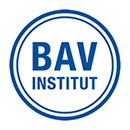

Interview with Dr. Bernhard Fellenberg
Dr. Bernhard Fellenberg, Business Development & Scientific Manager - food chemist, BAV Institut GmbH
BAV Institut GmbH
At what point is a microbiological examination of cosmetics necessary?
The testing of cosmetics (batch release) is always necessary if the product is hazardous from a microbiological point of view. These are cosmetics where microorganisms are able to multiply in the product due to the composition and properties of a cosmetic product. As the main component of most cosmetics, water plays a central role in the reproduction of microorganisms.
Exempt from routine testing are, for example, anhydrous products, products with very low or high pH values or cosmetics with correspondingly high alcohol (ethanol) contents. ISO 29621 provides a comprehensive description of the products for which routine microbiological testing can be dispensed with. In individual cases, microbiological testing can also be useful for low-risk products (lower test frequency).
A distinction must be made between routine testing and testing of the antimicrobial protection of a product (preservation challenge test). This test proves the microbial stability of a product and is carried out during development and initial release (test result is part of the safety report).
Are there any official limit values for the microbiological testing of cosmetic products?
There are currently no official or legal limits with regard to the microbiology of cosmetics. ISO 17516 (microbial limits) is considered state of the art in the assessment of the microbiological quality of cosmetic products.
This ISO provides specifications for maximum levels of bacteria, yeasts and moulds and requires the absence of so-called specified microorganisms in 1g of product (Escherichia coli, Pseudomonas aeruginosa, Staphylococcus aureus, Candida albicans). Any growth of microorganisms (even if below the specified limits) requires identification of the detected microorganisms for risk assessment of a product.
Furthermore, the identification result provides important information on the possible source of input (water, raw materials, personal hygiene, etc.).
What aspects have to be considered when sampling and analysing cosmetic products?
When taking samples of finished cosmetic products, special care must be taken to ensure that the samples are representative of the entire batch and that subsequent storage does not alter the sample. In addition, the staff responsible for sampling must be trained in aseptic working methods (especially important when sampling raw materials). The testing of the end products is carried out directly from the primary packaging, the examination of raw materials from corresponding sterile disposable sampling containers (glass should be avoided).
With regard to analytical testing, methods which have been shown to be suitable and thus provide reliable and reproducible results shall be used. The corresponding ISO standards for cosmetic products have established themselves as state of the art.
What technical requirements must a microbiological laboratory meet?
The technical equipment of a microbiological test laboratory includes not only devices (incubators, workbenches, sterile benches, stomachers etc.) but also primarily working materials such as culture media and dilution solutions. Qualified laboratory personnel also play an important role.
In accordance with the German Biological Substances Ordinance, the laboratory is classified into different protection levels with different safety requirements depending on the pathogens being worked with. Furthermore, the laboratory must be registered or approved by the competent authority. Regulations in this regard can be found in the Infection Protection Act (IfSG).
Who is responsible for ensuring microbiological quality?
First of all, it is the responsibility of those in charge of quality assurance and quality management to secure the microbiological quality of products within the company. Finally, and in accordance with the EU Cosmetics Regulation, the person in charge is responsible for compliance with the corresponding quality specifications (also microbiological).
If testing services are outsourced to external laboratories, it is important to make sure that they have the appropriate expertise and are accredited in accordance with ISO 17025. Technical support from an external laboratory for the interpretation of the results of microbial growth as well as microbiological and hygienic questions is very important.
What services can the BAV Institute offer?
The BAV Institute is an ISO 17025 accredited testing laboratory for the microbiological analysis of cosmetics, non-sterile drugs, medical devices, food&feed and water. In the field of testing cosmetics, the services offered include:
- Microbiological routine and release tests (germ count determinations, challenge testing etc.)
- Examination of monitoring and hygiene samples (set-offs, swabs, airborne microbial count determinations)
- Consulting & training on regulatory issues
- Marketability and labelling tests
- In association with the international Tentamus laboratory group, all relevant chemical test parameters (residues and content determination of active substances)
- Access to all results and test reports via the BAV online customer platform
- Fast & reliable as well as personal, competent and easily accessible contact persons
https://www.bav-institut.de/en



